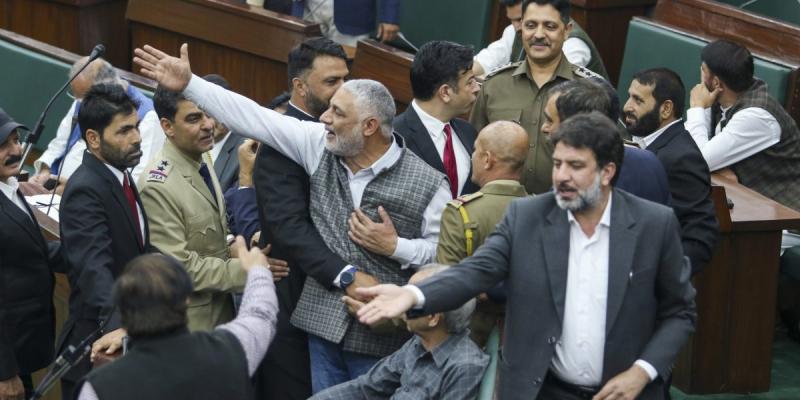Political and Religious Leaders Unite Against Assembly Speaker’s Move
Srinagar,07 April 205: A Controversial Decision Sparks Outrage
The Jammu and Kashmir Assembly Speaker Abdul Rahim Rather has come under fire from opposition parties and religious leaders for disallowing a discussion on the Waqf (Amendment) Bill during the ongoing budget session. The decision, citing the sub judice status of the matter, has been labeled as a betrayal of the public mandate and an alarming sign of political capitulation.
The Waqf Bill Controversy
The Waqf (Amendment) Bill, passed by Parliament and signed into law by President Droupadi Murmu, has been a lightning rod for criticism. The legislation, which alters the management of Waqf properties, has been described by critics as an attack on minority rights and religious autonomy.
Peoples Democratic Party (PDP) president Mehbooba Mufti expressed profound disappointment over the Speaker’s decision, accusing the ruling National Conference (NC) of yielding to the BJP’s agenda. “Despite securing a strong mandate, the government appears to have completely yielded to the BJP’s anti-Muslim agenda, cynically attempting to appease both sides,” Mufti stated.
Mirwaiz Umar Farooq’s Condemnation
Hurriyat Conference chairman and Kashmir’s chief cleric Mirwaiz Umar Farooq also criticized the Speaker’s refusal to allow a debate, calling it “ridiculous and condemnable.” He pointed out that Tamil Nadu, with only 6% Muslim population, had passed a strong anti-Waqf resolution in its assembly, while the Muslim-majority Jammu and Kashmir Assembly failed to even discuss the matter.
“The Speaker would know that the strong people’s mandate given to his party was precisely for the reason that the party had promised to safeguard the interests of the people being trampled upon since August 2019. Why is he capitulating so meekly?” Mirwaiz questioned.
Opposition’s Unified Criticism
The decision has united opposition parties in their criticism of the NC-led government. PDP leader Waheed Para accused the Speaker of hiding behind technicalities to evade responsibility on an issue of critical importance to the Muslim community. “This is a betrayal of the people’s trust and a failure to uphold democratic principles,” Para remarked.
People’s Conference chairman Sajad Lone also weighed in, questioning the logic behind a ruling party moving an adjournment motion. “The NC’s theatrics in the Assembly are nothing but a staged performance. If they were serious, they would have brought a no-confidence motion against their own Speaker,” Lone stated.
Political Fallout
The controversy has highlighted deep divisions within Jammu and Kashmir’s political landscape. While the NC-led government has positioned itself as a defender of minority rights, opposition parties accuse it of playing a “double game” by protesting the Waqf Act in the Assembly while failing to take substantive action against it.
The BJP, for its part, defended the Speaker’s decision, arguing that the matter is sub judice and cannot be debated in the Assembly. “The opposition is politicizing this issue to mislead the people of Jammu and Kashmir,” said BJP leader Sunil Sharma.
Public Reaction
The Speaker’s decision has sparked outrage among the public, with many residents expressing disappointment over the Assembly’s inability to address the Waqf Bill. “This is a critical issue for the Muslim community, and the Assembly’s silence is deeply troubling,” said a Srinagar resident.
Looking Ahead
As the Waqf Act continues to dominate political discourse in Jammu and Kashmir, the region’s leaders face mounting pressure to address the concerns of their constituents. The controversy serves as a litmus test for the NC-led government’s ability to navigate complex political challenges and uphold its promises to the people.




